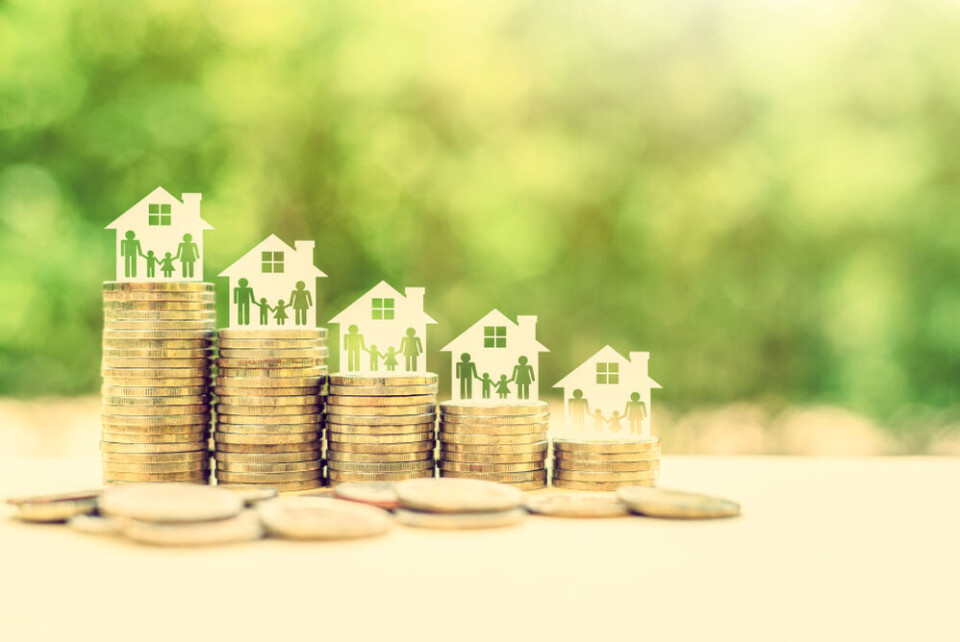-
White storks make strong return in France via nest ‘platforms’ and clipped wings
The Ligue pour la Protection des Oiseaux shares the conservation challenges in saving these birds from extinction
-
Hosting scheme in south-west France lets newcomers sample lifestyle
Households in nine Dordogne communes volunteer under Mes Nouveaux Voisins scheme
-
French boulangeries demand right for staff to work on May 1 so they can open
Artisan bakery owners can work but employees cannot, while certain industrial bakeries are allowed to remain open with workers
Standard of living in France increasing, latest report finds
A recent report calculated a household's living standards by comparing disposable household income to consumption. It found that in 2019, France’s average standard of living was €22,040 per year, a big jump from the previous year

The standard of living in metropolitan France increased by 2.6% between 2018 and 2019, the biggest single-year increase in the past 20 years, the national statistics bureau Insee states in its latest report published October 5 this year.
The bureau calculated the average household’s disposable income to be €22,040 per year.
This works out as 2.6% more than in 2018 in real terms (taking into account the evolution of consumer prices).
The standard of living metric is based on a household’s disposable income - including income from salary, social benefits, pensions, assets, etc. - divided by the number of consumption units.
Consumption units are calculated according to the OECD equivalence scale, which assigns 1 CU to the first adult in the household, 0.5 CU to others aged 14 or over and 0.3 CU to children under 14.
For example, for a household consisting of two adults (1.5 CUs) and one child (0.3 CUs), with a disposable income of €35,000, the standard of living is approximately €19,444 (35,000/1.8) for each person in the household.
Insee said the increase between 2018 and 2019 was “much higher than the average recorded over the past 20 years (which is 0.8% on average per year)”.
Insee reported the following figures on the standard of living in France:
-
90% of people in France have a standard of living above: €11,660 per year
-
80% of people in France have a standard of living above: €14,790 per year
-
70% of people in France have a standard of living above: €17,410 per year
-
60% of people in France have a standard of living above: €19,730 per year
-
50% of people in France have a standard of living above: €22,040 per year
-
40% of people in France have a standard of living above: €24,510 per year
-
30% of people in France have a standard of living above: €27,590 per year
-
20% of people in France have a standard of living above: €31,770 per year
-
10% of people in France have a standard of living above: €39,930 per year
-
5% of people in France have a standard of living above: €49,870 per year
Inequality decreased in 2019 after a sharp increase in 2018, the report also found.
However, around 9.2 million people in France were still living below the monetary poverty line, meaning they were taking home less than €1,102 per month.
European comparison
In terms of average gross annual full-time equivalent (FTE) pay, France was above the EU average of €38,150 in 2019, coming in 11th place with €41,600, a 2020 Insee study found.
This puts France ahead of Italy at €36,200 and behind the Netherlands at €46,800.
Germany was 8th, at €47,124, and the UK was 9th, at €46,986.
The study placed Bulgaria at the bottom of the scale, at €8,800, and Denmark at the top, with €63,300.
The United Nations Development Programme (UNDP) has a different index, called the Human Development Index (HDI), to rank countries’ standards of living.
The HDI takes into account more than just the GDP per capita of a country, including assessing life expectancy and education levels, among others.
In the 2020 index, France placed in 26th position, with an HDI score of 0.891.
Germany came in fourth with an HDI of 0.939, while the US and the UK were tied in 15th place with a score of 0.92.
Related stories:
Seven money changes coming into effect in France in October
France 2022 budget: How could it affect your finances?
Pandemic boosted French savings: Options beyond bank current account
























